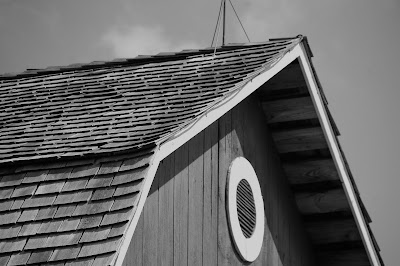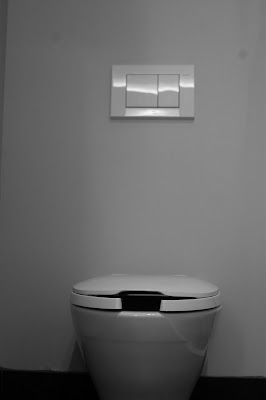This is, perhaps, my favorite exhibit at Frederik Meijer Gardens & Sculpture Park. I have never lived in a farm, but I have romanticized about the experience of being one with one's environment. Walking through the farm's garden's, barnyard, and farm house is worth the price of admission if this was the only exhibit you have to see.
Below is the description of Michigan's Farm Garden from the Meijer Garden's website along with more photos I took of the farm.
"Michigan's Farm Garden is reminiscent of a 1930's family farm. The farmhouse, barn, gardens, sugar shack and animal pens are reminders of a bygone era when the land supplied the family with groceries and income, a time when every family member helped with chores.
Central to the Michigan's Farm Garden is the 1880's farmhouse. It is a three-quarters scale model of Lena (Rader) Meijer's childhood home. The wrap-around porch has rocking chairs for visitors to reminisce and escape from the summer heat. The windmill was an important feature on the farm, supplying water and powering other machinery. Restored to its original glory, the windmill is from the Rader family farm.
The century-old barn was moved from it's original site with the help of Amish craftsmen. Awarded "2005 Barn of the Year" by the Michigan Barn Preservation Network, the barn remains a symbol of a vanishing way of life.
Farm animals are represented by bronze sculptures. Pigs, goats, sheep and horses all played a role in keeping the family clothed and fed. Do you recall stump fences along farm fields? We have them in bronze at Michigan's Farm Garden.
The vegetable gardens and flower beds are dedicated to heirloom varieties – open pollinated types used for more than 50 years. Appearance and short shelf-life of fruits and vegetables were not important to the 1930's farm. The well-tended bounty was grown for quality in flavor and much was used fresh. Nothing went to waste; great emphasis was placed on preserving, canning and storing food for the whole year."































































